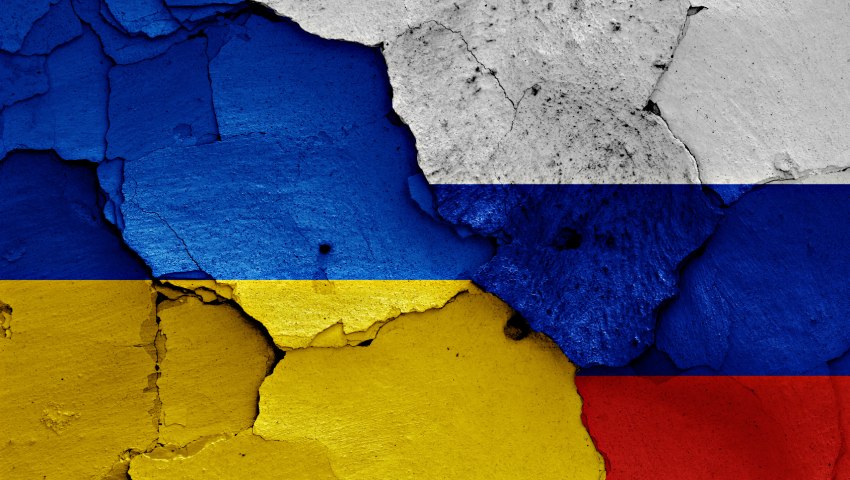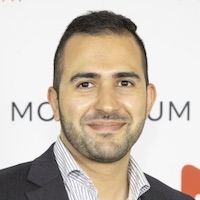Is Russia’s invasion of Ukraine a symptom of an “unrecognised and unacknowledged” cold war?
To continue reading the rest of this article, please log in.
Create free account to get unlimited news articles and more!
Russia’s assault on Ukraine has rattled the global order, with Europe hosting a state-on-state clash with the potential to reap violence on a scale unseen since the Second World War.
A Russian withdrawal seems unfathomable without appeasing President Vladimir Putin’s increasingly aggressive regime, which claims to be threatened by NATO’s expansion in eastern Europe.
However, the invasion has only emboldened Ukraine’s push to build formal ties with its Western neighbours, with President Volodymyr Zelenskyy recently submitting a formal application for membership to the European Union.
NATO and other like-minded nations, including Australia, have pledged to provide Ukraine with military equipment, medical supplies and financial support, while also imposing severe sanctions on Russia and its ally Belarus, which helped facilitate the invasion.
With much of the international community now embroiled in the European crisis, some fear a return to what many thought was a bygone era.
According to Stephen Loosley, former Labor MP and non-resident senior fellow at the United States Studies Centre, this “return to militarised barbarism” has its origins in the “unrecognised and unacknowledged” second cold war.
“Few may be prepared to concede this elementary reality of geopolitical life, but the West has been engaged in a second cold war for at least a decade.”
Loosley claims the Russian annexation of Crimea in 2014 signalled a shift in the geopolitical landscape, with strategic competition between authoritarian regimes, (i.e. China and Russia) and democracies becoming confrontational.
“From this point, treaties and protocols came to mean nothing to the dictators,” Loosley continues.
“Observe the trashing of the Minsk accords or the Hong Kong handover agreement. The signs are unmistakeable: security, cyber space, economic, political and cultural.
“Look no further than consistent and continuing cyber attacks on Western institutions and our basic expressions of liberty, especially elections, and the choreography of the second cold war emerges clearly.”
The invasion of Ukraine and heightened tensions in the Indo-Pacific, he adds, are “merely reflections of a continuing reality”.
This cold war reality, Loosley adds, is reflected in China’s aim to replace the United States as the world’s global power and Russia’s “more immediate and cruder” ambitions in eastern Europe.
Loosley notes that both President Putin and Chinese President Xi Jinping have sought to achieve their objectives by assuming the guise of a democracy.
“This actually demonstrates that Western arguments about the intrinsic values of democratic systems have penetrated,” he writes.
“It is why the dictators cloak themselves in phony democratic symbols, mocking courts, parliaments and civil society.”
Loosley goes on to stress that China’s ambitions are “truly imperial”, pointing to Beijing’s territorial claim in the South China Sea, which some Chinese Communist Party (CCP) representatives assert dates back to the Tang Dynasty.
Meanwhile, Loosley writes, Putin aims to rebuild the Russian empire of the time of Alexander III (1881-94) founded on three pillars – orthodoxy, autocracy and a vibrant Russian nationalism.
“Putin has never forgotten Barack Obama’s dismissal of Russia as a regional power,” Loosley observes.
“Ever since, he has been utterly committed to projecting Russian influence into different parts of the world, including using mercenaries from Mali to Moldova to Mariupol.
“To do this, the Kremlin must employ uncompromising brute military force, and this is where the West has been slow to realise the changing nature of Chinese and Russian objectives.”
This latest wave of aggression and territorial ambition, Loosley continues, puts to bed Francis Fukuyama’s claim that the rise of liberal democracy represented “the end of history”.
“The invasion of Ukraine surely explodes this theory. Great-power rivalries, based on mutual antipathy, are again the norm.
“Taiwanese democracy is just as offensive to Beijing as the emerging Ukrainian democracy is to Moscow.
“For the dictators, alternative systems that deliver much better outcomes for people must never be allowed to develop and prosper, especially on their borders. Their actual existence threatens the dictators’ grip on people.”
Loosley calls on Western powers to recognise the burgeoning authoritarian threat, noting they are more than capable of answering the challenge.
“Alas, during the past two decades, Russia and China have constructed warfare states and make no secret of the power of their armed forces and their preparedness to deploy them,” he notes.
“But not for one moment should we regard the cliques in Beijing and Moscow as being superhuman. They are not and face many significant challenges, especially in demography.
“A resilient and resourceful West is more than equal to the challenges being laid down by the dictators.”
However, the world must be prepared for a protracted struggle.
“All the elements of statecraft need to be employed, but first and foremost, our democratic health needs to focus on issues of real and immediate concern and less on the trivia of the 24-hour news cycle,” Loosley observes.
“The first Cold War was won by interlocking Western alliances. So, too, will the second cold war be won as a consequence of the performance of reinforcing allies and partners. Ukraine is the first real test.”
Get involved with the discussion and let us know your thoughts on Australia’s future role and position in the Indo-Pacific region and what you would like to see from Australia's political leaders in terms of partisan and bipartisan agenda setting in the comments section below, or get in touch with
Charbel Kadib
News Editor – Defence and Security, Momentum Media
Prior to joining the defence and aerospace team in 2020, Charbel was news editor of The Adviser and Mortgage Business, where he covered developments in the banking and financial services sector for three years. Charbel has a keen interest in geopolitics and international relations, graduating from the University of Notre Dame with a double major in politics and journalism. Charbel has also completed internships with The Australian Department of Communications and the Arts and public relations agency Fifty Acres.

 Login
Login








